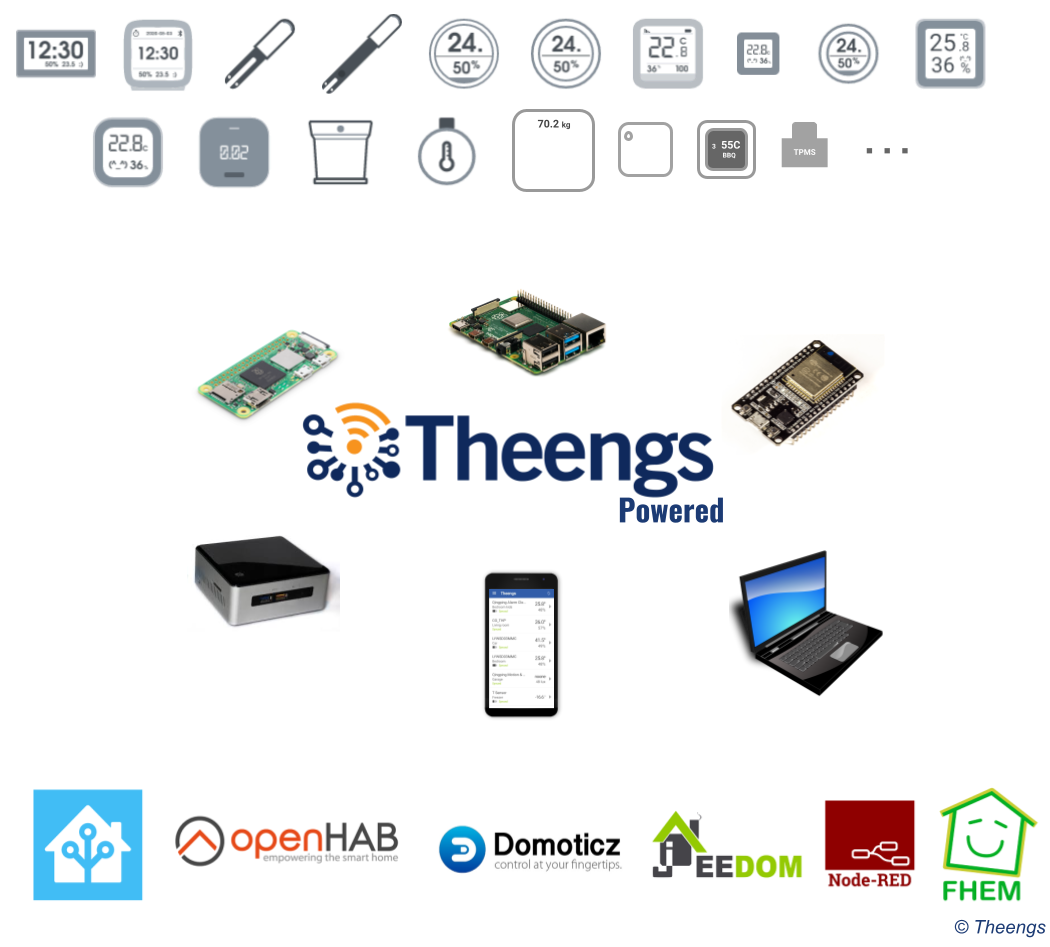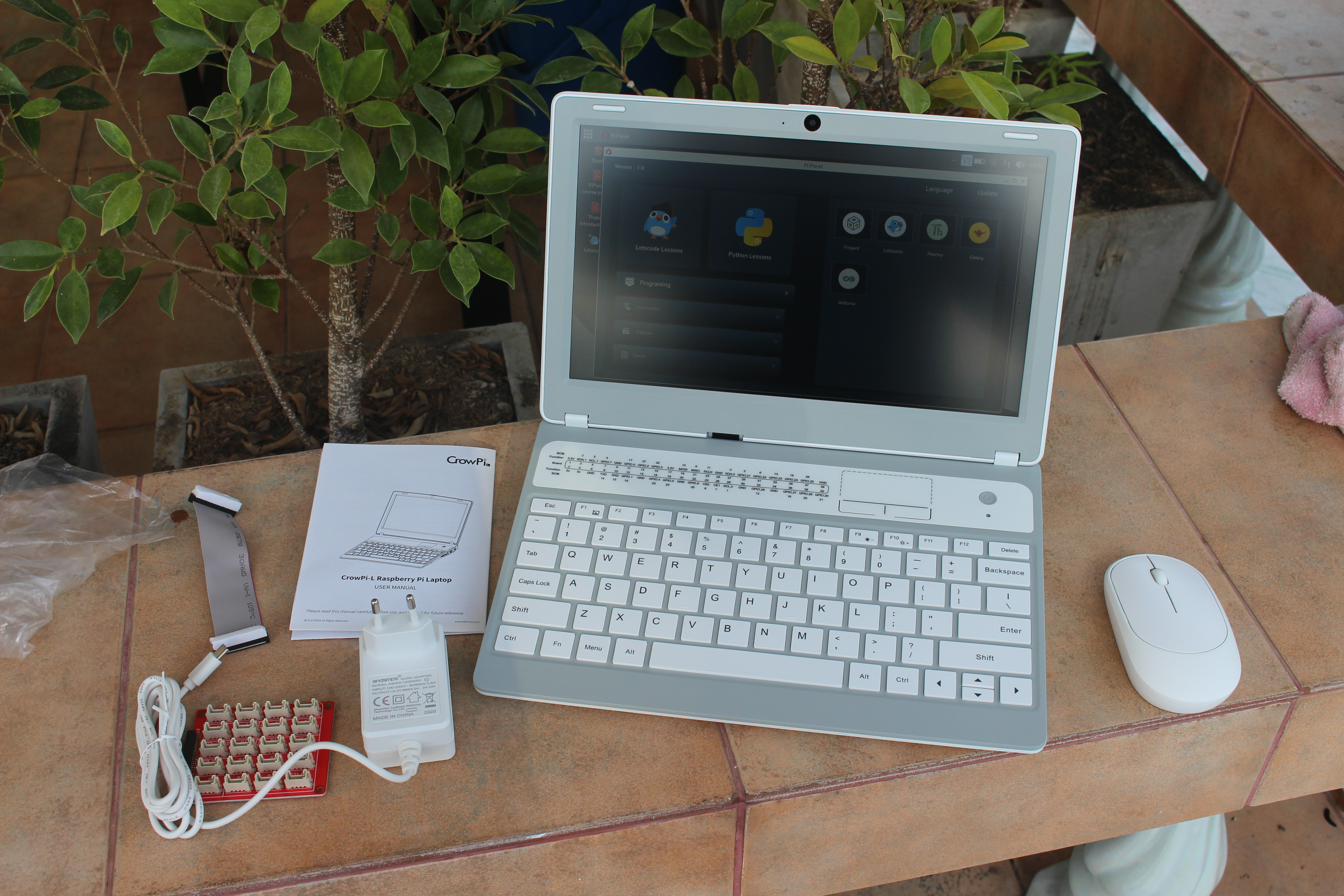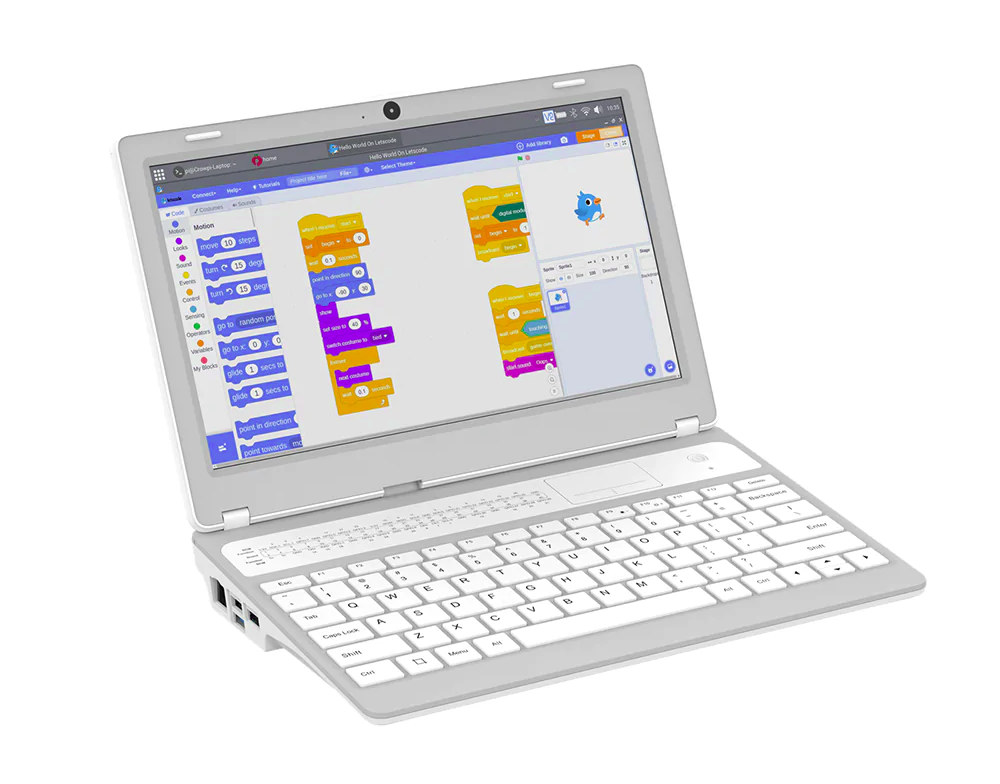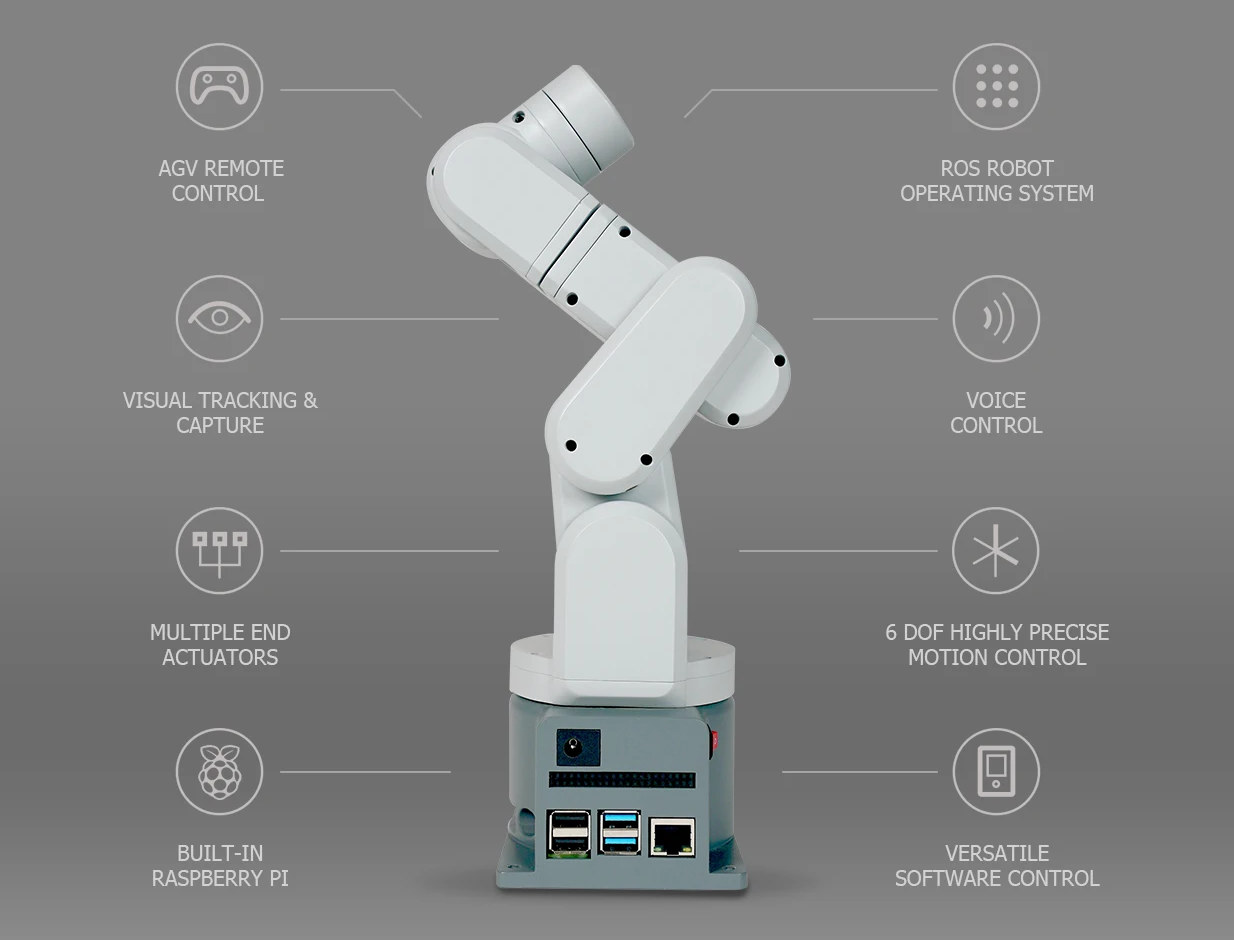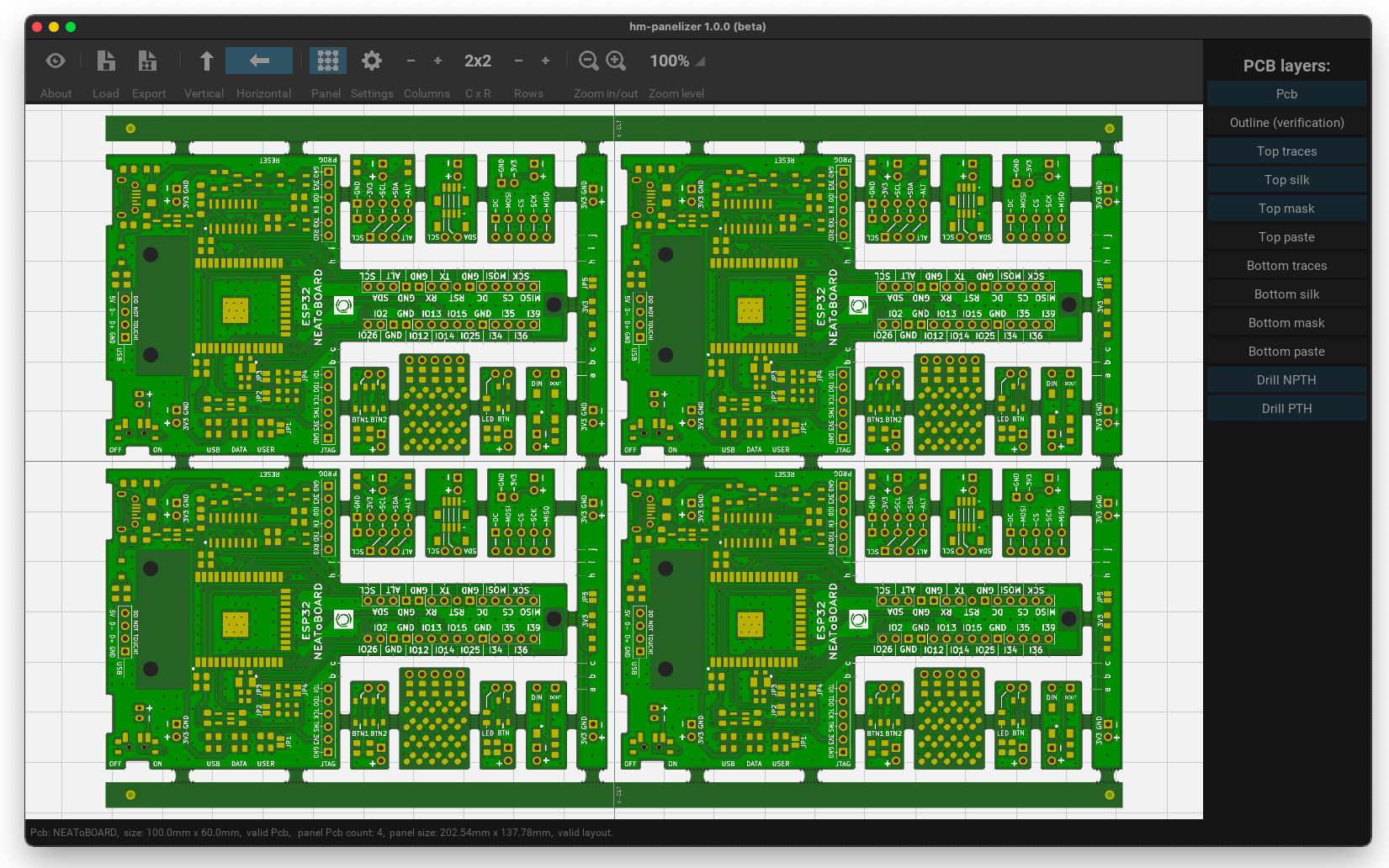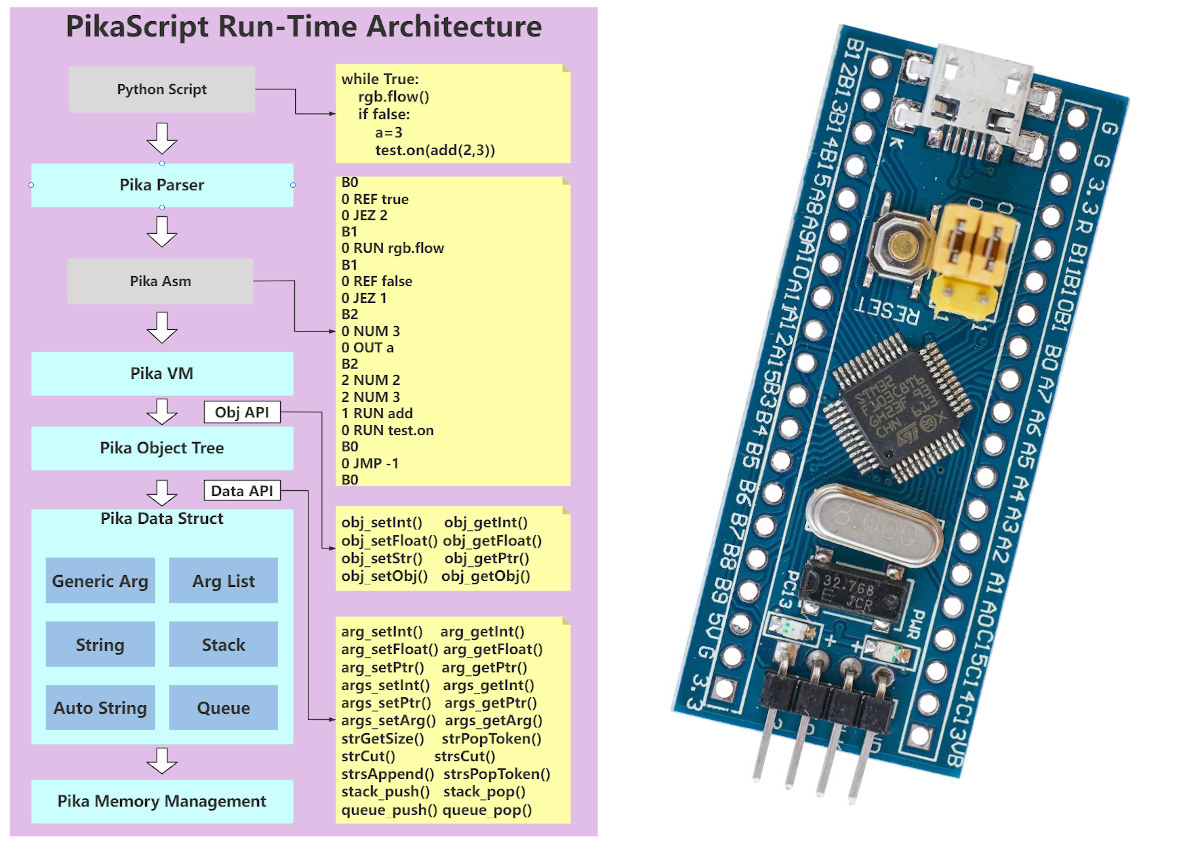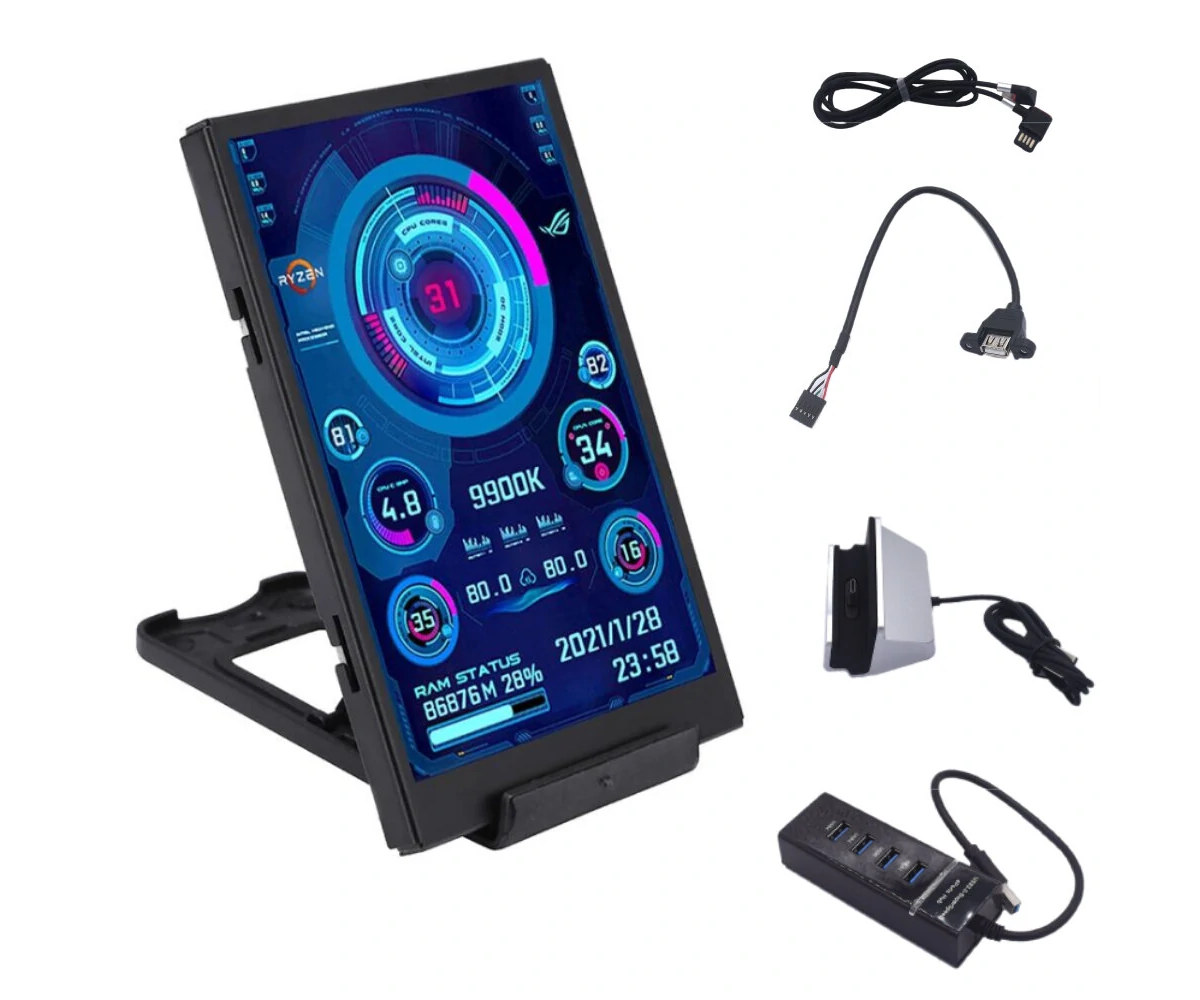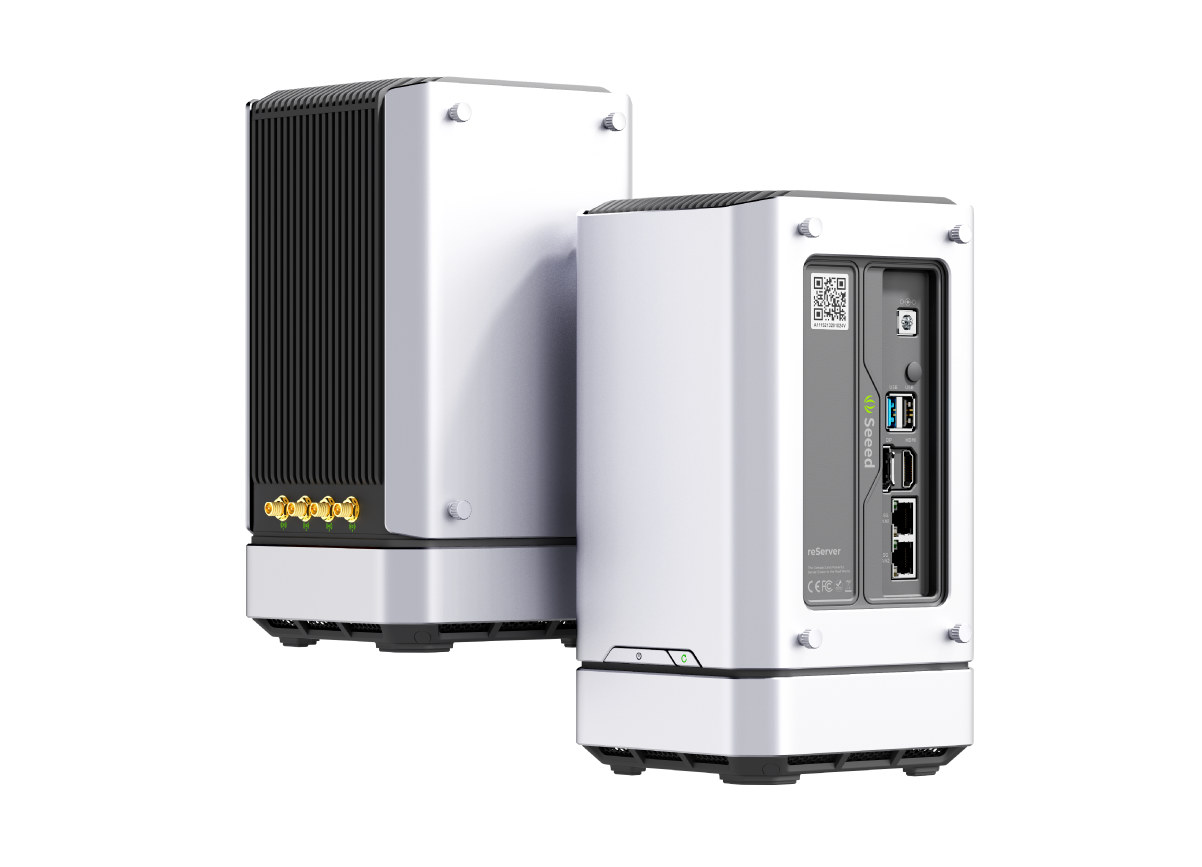Theengs is a manufacturer agnostic open-source set of tools to decode BLE sensors and integrate those into smart home and IoT solutions such as Home Assistant with notably support for autodiscovery to automatically create the sensor. Theengs can be installed on various hardware from ESP32 to an Android phone or a Raspberry Pi SBC, and the solution currently supports close to forty BLE sensors from various companies including Xiaomi, Honeywell, and RuuviTag. There are six components: The Theengs Decoder library developed in C++ for portability and translating data from sensors into human-readable data using the JSON format. The Python-based Theengs Gateway acting as a BLE to MQTT bridge for Home Assistant, OpenHAB, and NodeRED integration. It relies on the Theengs Decoder library and publishes the sensors broadcasted BLE information to an MQTT broker. The OpenMQTTGateway is also BLE to MQTT bridge, but instead of targetting Linux-capable hardware like Raspberry […]
CrowPi L Raspberry Pi 4 laptop review – Part 1: Unboxing and teardown
Elecrow CrowPi L is an 11.6-inch laptop shell based on Raspberry Pi 4 designed for STEM education with optional electronics modules and tutorials. That’s an evolution of the CrowPi 2 laptop I reviewed in 2020 with a thinner design and more flexible since the electronics modules are optional, so it can serve the market of people just wanting a Raspberry Pi 4 laptop. The company has sent me a full “CrowPi L Advanced Kit” for review with the CrowPi L laptop fitted with a Raspberry Pi 4, as well as the Crowtail Starter Kit for Raspberry Pi. CrowPi L Advanced Kit Unboxing Let’s check out the laptop package first. Since in this design, the laptop comes with a battery, and mine already had a Raspberry Pi 4 installed, I could just turn it on immediately. Accessories include a wireless mouse, a 12V/2A power supply (with USB Type-C plug… this should […]
CrowPi L is a $200 laptop shell for Raspberry Pi 4
Two years ago, we reviewed CrowPi 2 Raspberry Pi 4 laptop designed for STEM education with embedded electronics modules and Letscode software with step-by-step tutorials to learn Scratch and Python programming. I found it quite good, but many people were mostly interested in having a Raspberry Pi 4 laptop, and the price tag was a bit high at the time. That’s probably why Elecrow has now designed for CrowPi L laptop shell for Raspberry Pi 4 based on the CrowPi 2 but without all the electronics modules, and with a built-in battery to operate more like an actual laptop. CrowPi L laptop shell specifications: Compatible SBC’s – Raspberry Pi 4 Model B only Storage – Full-size SD card slot Display – 11.6-inch 1366×768 IPS screen (CrowPi 2 was 1920×1080) Video Output – HDMI output for external monitor Camera – 2MP camera Audio – Built-in microphone and stereo speaker; 3.5mm audio […]
MechArm Pi 270 is a desktop robotic arm powered by a Raspberry Pi 4 SBC
Elephant Robotics MechArm Pi 270 is a six-axis robotic arm with a 270mm working radius, support for up to 250 grams payload, and that runs Debian/Ubuntu + ROS on a Raspberry Pi 4 single board computer. The robotic arm was introduced last year in two separate crowdfunding campaigns on Kickstarter and Indiegogo organized by MechArm, which has now joined Elephant Robotics, and now supports myStudio software to upgrade the software, provide video tutorials on how to use the robot, as well as maintenance and repair information. MechArm Pi 270 key features and specifications: Controller – Raspberry Pi 4 Model B SBC with quad-core Cortex-A72 processor, dual-band WiFi 5 & Bluetooth 5.0 connectivity Display I/F – 2x Micro HDMI output port up to 4Kp60 Supported cameras – Official Raspberry Pi cameras or third-party USB cameras USB – 2x USB 3.0 ports, 2x USB 2.0 ports Robotic arm 270mm working range 6 […]
hm-panelizer – A KiCad companion GUI tool for panelizing PCBs
Gerard (aka halfmarble) has released hm-panelizer open-source software allowing for a panelization of PCBs via a simple GUI interface and doubling as a Gerber file viewer. He’s mostly tested it with PCBs designed in KiCad 6.x, but it should also work with design files from other tools. Note that hm-panelizer is just a side project, and Gerard released it as an open-source project in hopes that it might be useful to users and the community will contribute to it. The project relies on kivy cross-platform library, pygame and pycairo libraries, as well as pcb-tools and pcb-tools-extension projects. There are some requirements for the utility to work on with your PCB : Use the metric system The PCB Gerber files must use Altium/Protel filename extensions The board outline gerber file (.gm1) must be present “Disable aperture macros” when exporting Gerber files (this may not be needed for simple designs and only […]
PikaScript – A lightweight Python implementation that runs on STM32 and other low-end MCUs
PikaScript is an ultra-lightweight Python engine that can run on microcontrollers with as little as 4KB of RAM and 32KB of Flash, while the more popular MicroPython requires at least 256kB of code space and 16kB of RAM. PikaScript was initially developed to run on STM32G030C8 and STM32F103C8 MCUs, meaning, for example, it works on the BluePill board, but it has also been ported to other platforms like WCH CH582 RISC-V MCU, WinnerMicro W806 C-Sky microcontroller, as well as other like Raspberry Pi RP2040, ESP32-C3, etc… but those are not quite as well supported with some features missing. PikaScript also permits the binding C function to a Python module through Pika Pre-compiler. PikaScript can run bare metal on the microcontroller, but also supports real-time operating systems such as RT-Thread and VSF (Versaloon Software Framework), as well as Linux. Just like MicroPython, it’s using a subset of Python 3, but I’d […]
Turing Smart Screen – A low-cost 3.5-inch USB Type-C information display
“Turing Smart Screen” is a low-cost 3.5-inch USB-C display that connects to systems with a USB port, and works with Windows, Linux (including Raspberry Pi), MacOS, and other operating systems that support Python3. But contrary to my initial assumptions, it does not exactly act as a second monitor, and instead, it is an information display, originally designed to show resource utilization, e.g. CPU and memory usage, in Windows, and controlled through commands send to the USB port. Turing Smart Screen specifications: 3.5-inch IPS display with 480×320 resolution, portrait and landscape support MCU – WCH CH552T 8-bit E8051 core MCU for USB devices Host interface – USB Type-C interface Auto start on power on Dimensions Product: 85 x 55 x 8 mm Display area: 74 x 49 mm The manufacturer says it works with Windows only using its own software, and not AIDA64. The Windows software features functions to change the […]
reServer Jetson-50-1-H4 is an AI Edge server powered by NVIDIA Jetson AGX Orin 64GB
reServer Jetson-50-1-H4 is an AI inference edge server powered by Jetson AGX Orin 64GB with up to 275 TOPS of AI performance, and based on the same form factor as Seeed Studio’s reServer 2-bay multimedia NAS introduced last year with an Intel Core Tiger Lake single board computer. The 12-core Arm server comes with 32GB LPDDR5, a 256GB NVMe SSD pre-loaded with the Jetpack SDK and the open-source Triton Inference server, two SATA bays for 2.5-inch and 3.5-inch drives, up to 10 Gbps Ethernet, dual 8K video output via HDMI and DisplayPort, USB 3.2 ports, and more. reServer Jetson-50-1-H4 (preliminary) specifications: SoM – Jetson AGX Orin module with CPU – 12-core Arm Cortex-A78AE v8.2 64-bit processor with 3MB L2 + 6MB L3 cache GPU / AI accelerators NVIDIA Ampere architecture with 2048 NVIDIA CUDA cores and 64 Tensor Cores @ 1.3 GHz DL Accelerator – 2x NVDLA v2.0 Vision Accelerator […]


